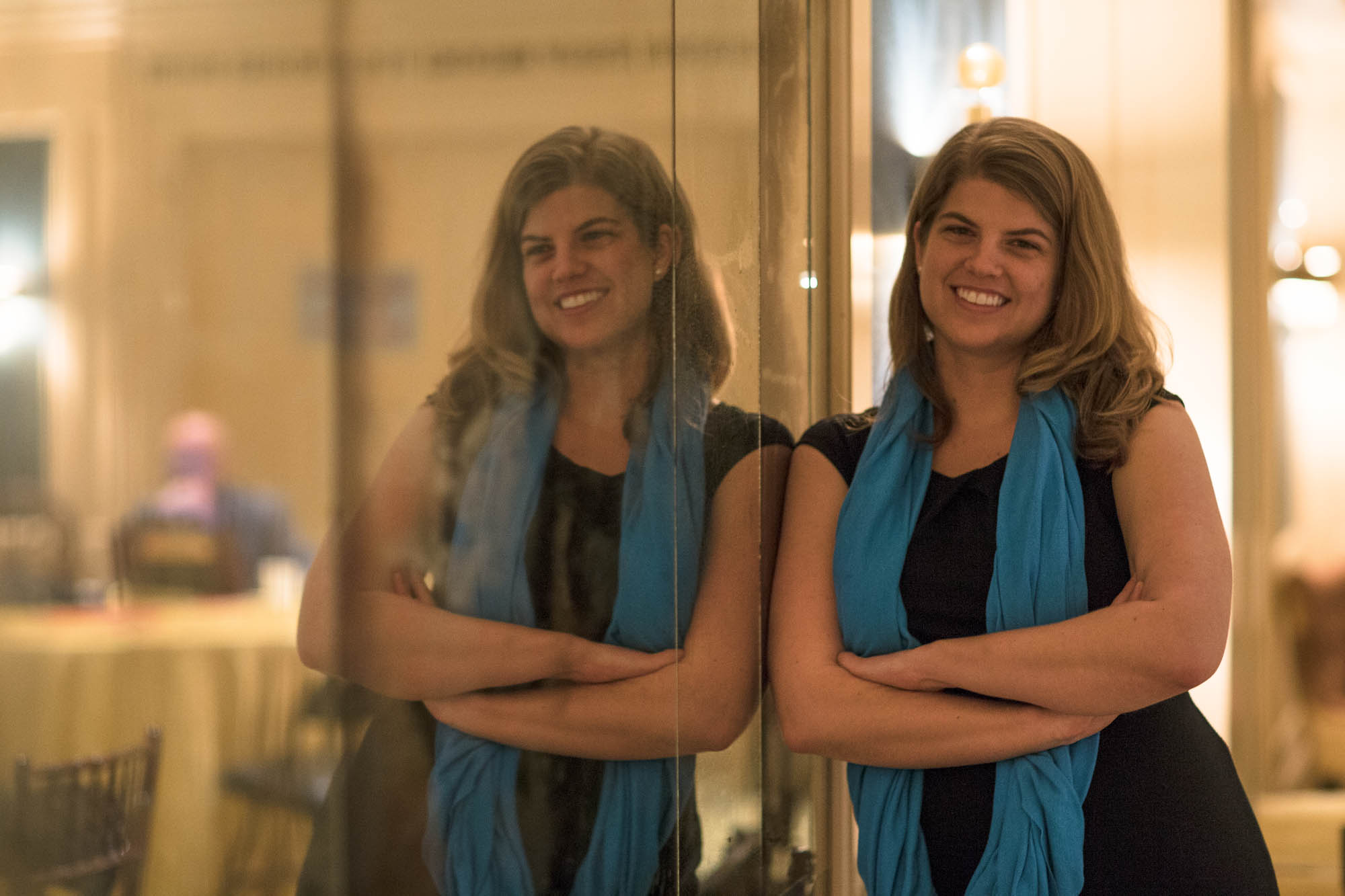University of Virginia alumna Vanessa Hurst joined the Tom Tom Founders Festival on Friday to discuss her success as an entrepreneur and her efforts to help make the tech industry more accessible for women.
Hurst, a 2008 graduate of the School of Engineering and Applied Science, is the founder of CodeMontage, an organization that connects computer programmers who wish to expand their skills with social-good projects that need volunteer coders. She also co-founded Girl Develop It, a non-profit organization that provides affordable and “judgment-free” opportunities for women to learn Web and software development.
In less than a decade since her graduation, Hurst’s rapidly growing organizations have had a major impact on the tech industry. Yet were it not for one engineering course, she might never have founded either one.
When Hurst enrolled at U.Va., she intended to study biomedical engineering, not computer programming. She thought of coding as a hobby, not something she could make into an impactful career. That all changed when she took “Introduction to Computer Science,” a course required for all first-year engineering students.
“Once we started to get into the basics of automation, that was the click,” Hurst said. “That was when I realized computing was powerful.”
She developed a passion for coding and began to consider how it could be used to better the world. She changed her plans and earned her degree in computer science.
After graduation, Hurst worked as a developer at a New York City software company, but the demands of the job prevented her from doing the kind of meaningful work that she enjoyed. When a large new software release for the company conflicted with her plans to volunteer at a soup kitchen with the Virginia (Alumni) Club of New York, Hurst knew it was time for a change.
“Basically, I couldn’t go because my responsibility was too high and I remember thinking that was so weird,” she said. “I thought, ‘How could I be able to help this really expensive software company make this shift, but not be able to help this cause that I really care about?’”
To create more volunteer opportunities for herself and others with similar skills, Hurst started a monthly meet-up, “Developers for Good.” Beginning with just a few New York-based coders coming together in person to assist with various non-profit projects, the meetings grew to include programmers from other cities participating electronically. Hurst founded CodeMontage to link the “Developers for Good” programmers with social-good groups that needed computer help.
Today, CodeMontage helps developers from all over the world donate their time to assist with an ever-expanding list of social-good projects. A key element of their success is their commitment to allowing coders of all skill levels to contribute.
“All of our projects are open-source. That’s one of the ways we lower the barrier to entry for people to get started helping,” she said. “You don’t have to go through a six-month training or review process, which is how a lot of other skills-based volunteering models worked at the time we got started.”
Hurst said such training requirements exclude a large number of volunteers who are willing and able to help. The CodeMontage model draws a much larger pool of contributors, including those motivated by the desire to expand their resumé. They’ve helped develop software like Quill, an interactive grammar program that helps teachers quickly assess students’ grammar skills and provide personalized lessons based on their level of knowledge.
Girl Develop It is meant to similarly lower barriers to entry by helping women nurture and expand their programming skills. The group’s “judgment-free” learning commitment grew out of repeated discussions Hurst had with other female software developers about reasons they sometimes felt held back in the tech industry.
“We were all really tied to the feeling that it’s hard to ask questions if you feel like you’re representing all women everywhere,” Hurst said. “Code and the technology industry are all about learning at a rapid pace and you’re never going to know everything. So, if because you’re a woman – even if you have all the right preparation – if you don’t feel as comfortable asking a question, it’s going to limit your growth and limit what you’re able to do.”
Since its founding in 2010, Girl Develop It has grown to more than 35,000 members. Hurst’s efforts have helped women in 47 cities across the United States gain access to a comfortable place to learn and ask questions about technology.
Asked to offer advice to potential entrepreneurs at the Tom Tom Founders Festival, Hurst suggested that the key to a successful venture is to find something you are passionate about and start small. Girl Develop It started with a simple question: “Can I help the woman next to me get more comfortable with technology?”
Hurst said she is excited about Charlottesville’s potential as a start-up hub and hopes that sharing her experiences at the festival will help to spur further local innovation.
Media Contact
Article Information
April 20, 2015
/content/vanessa-hurst-looks-better-world-through-technology

